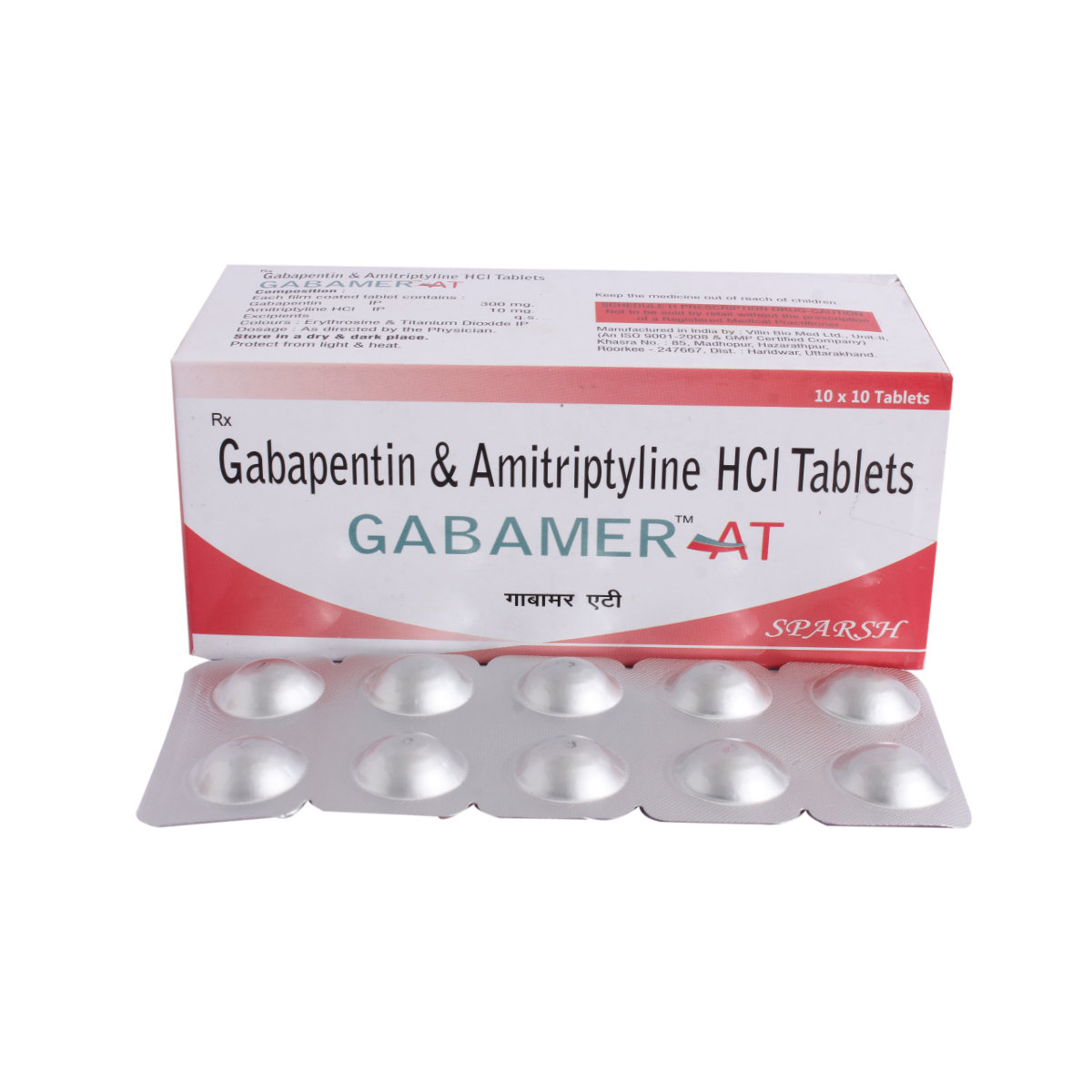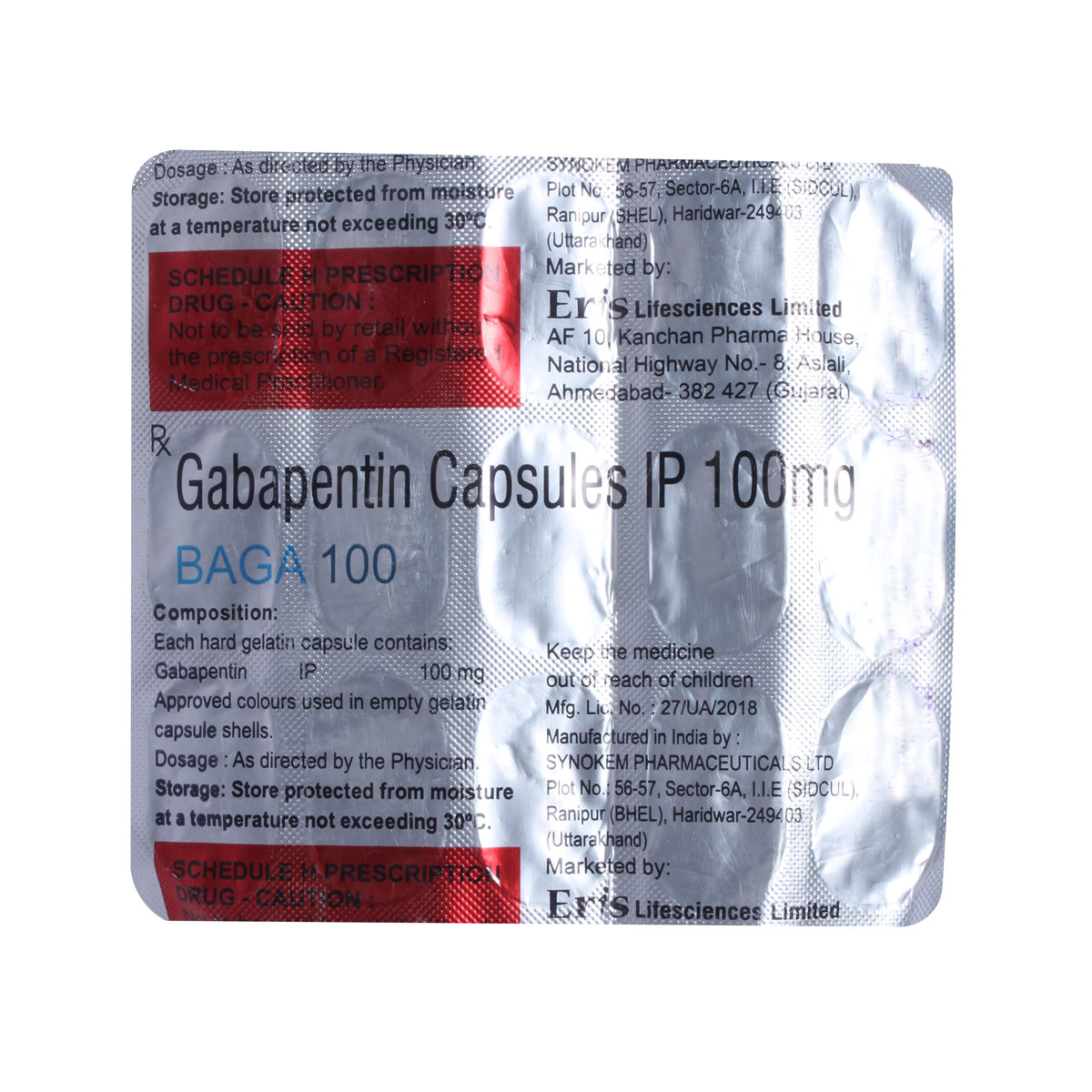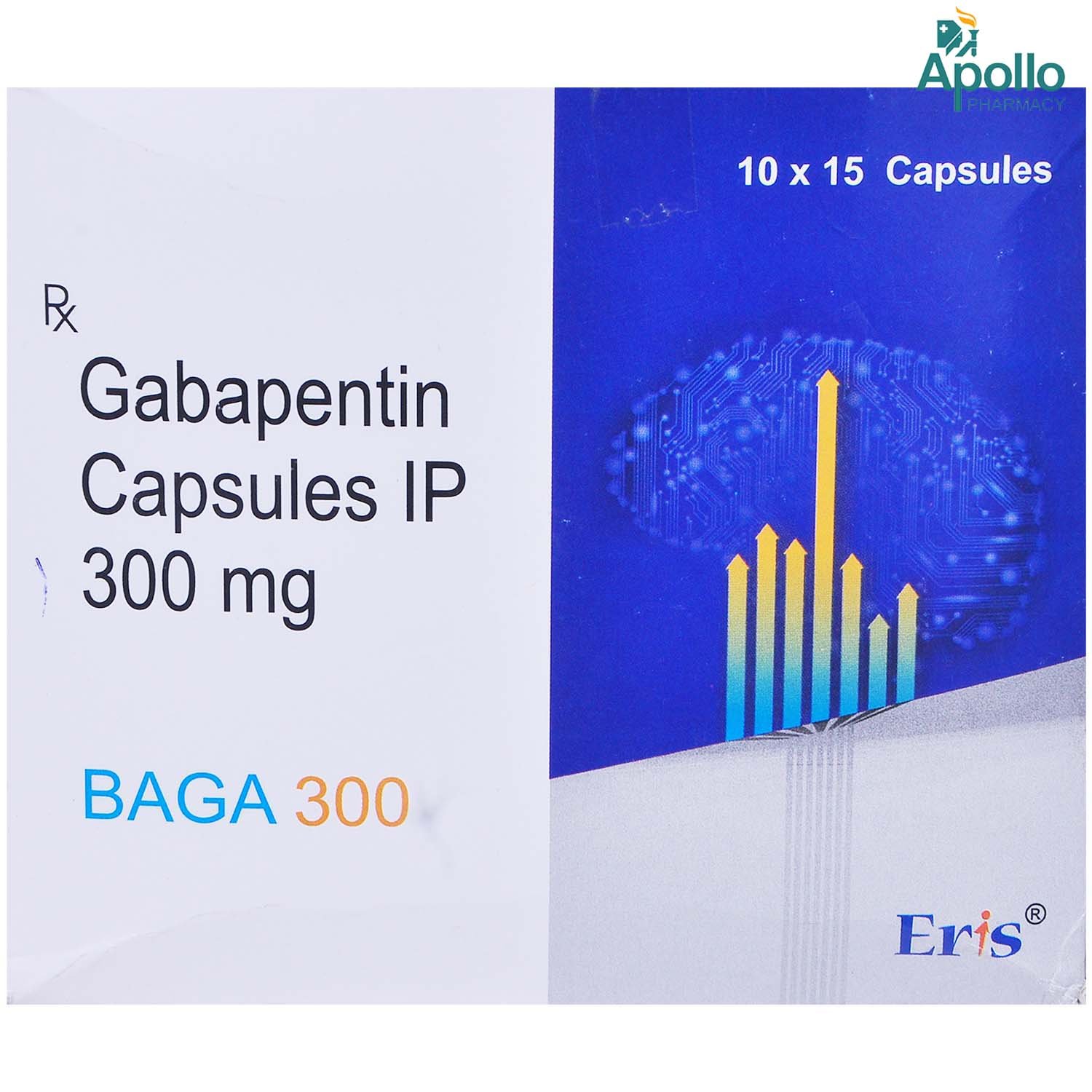Gabapentin
About Gabapentin
Gabapentin belongs to a group of medications called anticonvulsants used to manage or prevent neuropathic pain and epilepsy. Besides this, occasionally used to treat migraine headaches. Neuropathic pain is a chronic progressive nerve disease that causes nerve pain. On the other hand, epilepsy is a nervous system disorder that occurs due to disturbed nerve cell activity in the brain.
Gabapentin contains Gabapentin' which works by binding to the specific site on voltage-gated calcium channels; this helps in relieving nerve pain and lowers the risk of seizures. Besides this, it also decreases the number of pain signals sent out by damaged nerves in the body.
Gabapentin is available on prescription. It comes as capsules, tablets, and a liquid that you drink. Gabapentin can be taken by adults and children aged six years and over. Take Gabapentin exactly as directed. Please do not take more or less of it or take it more often than prescribed by your doctor. Sometimes, you may experience some side effects, including feeling sleepy, tired and dizzy. Most of these side effects do not require medical attention and will resolve gradually over time. However, you are advised to talk to your doctor if you experience these side effects persistently.
To treat your condition effectually, continue taking Gabapentin for as long as your doctor has prescribed. Please do not stop taking Gabapentin without consulting your doctor as it could cause withdrawal symptoms. Do not take Gabapentin if you are pregnant or breastfeeding unless prescribed by the doctor. Gabapentin may cause drowsiness and dizziness, so drive if you are alert. Gabapentin should not be given to children unless prescribed. Avoid consuming alcohol along with Gabapentin as it could lead to increased dizziness and sleepiness. Keep your doctor informed of your health condition and medicines to rule out any side effects.
Uses of Gabapentin
Medicinal Benefits
Gabapentin belongs to a class of medications called 'anticonvulsants' used to prevent neuropathic pain (pain due to damaged nerves), fibromyalgia (musculoskeletal pain), and epilepsy (fits). It works by binding to the specific site on voltage-gated calcium channels and blocking the action of overexcited channels; this helps in relieving nerve pain and lowers the risk of seizures. Overall it reduces nerve pain by interfering with pain signals travelling through the damaged nerves and the brain.
Directions for Use
Storage
Side Effects of Gabapentin
- Feeling sleepy
- Tired or dizzy
- Feeling sick (nausea)
- Being sick (vomiting)
- Diarrhoea
- Getting more infections than usual
- Mood changes
- Swollen arms and legs
- Blurred vision
- Dry mouth
- Difficulties for men getting an erection
- Weight gain
- Feel hungry
- Memory problems
- Headaches
Drug Warnings
Do not take Gabapentin if you are allergic to any of its contents. Inform your doctor before taking Gabapentin if you have symptoms of suicidal ideation or behaviour, drug addiction, chronic pulmonary insufficiency, muscle weakness, heart problems, liver/kidney impairment. Please do not stop taking Gabapentin without consulting your doctor as it could cause withdrawal symptoms. Do not take Gabapentin if you are pregnant or breastfeeding unless prescribed by the doctor. Avoid driving and consuming alcohol along with Gabapentin it could lead to increased dizziness and sleepiness. Consult your doctor immediately if you experience suicidal tendencies. Avoid taking St John's Wort herbal supplement (antidepressant) while taking Gabapentin as it might cause increased dizziness and sleepiness. Keep your doctor informed about your health condition and medicines to rule out any side effects.
Drug Interactions
Drug-Drug Interactions: Gabapentin may interact with painkillers (morphine, hydrocodone, oxycodone, tramadol, codeine), antidepressants (fluoxetine, amitriptyline), antipsychotics (quetiapine), antimalarial (mefloquine), a weight loss medicine (orlistat), anti-histamine (diphenhydramine, cetirizine).
Drug-Food Interactions: Avoid consumption of alcohol and St John's Wort herbal supplement (antidepressant) while taking Gabapentin as it might cause increased dizziness and sleepiness.
Drug-Disease Interactions: Gabapentin may have interaction with disease conditions such as heart problems, depression, diabetes, schizophrenia, bipolar disorder, suicidal tendency, kidney and liver problems.
Drug-Drug Interactions Checker List:
Safety Advice

Alcohol
unsafeIt is unsafe to consume alcohol since it may worsen the side effects like dizziness and sleepiness.

Pregnancy
cautionGabapentin is a category B1 pregnancy drug. Please consult your doctor. Your doctor will weigh the benefits and potential risks before prescribing Gabapentin.

Breast Feeding
cautionUsually, you can breastfeed while taking Gabapentin. Please consult your doctor before starting Gabapentin. Your doctor will weigh the benefits and potential risks before prescribing Gabapentin.

Driving
cautionDo not drive or operate machinery if you experience dizziness or drowsiness while using Gabapentin. Gabapentin can also sometimes cause blurry/double vision, hence avoid driving in such situations. Seek medical attention if the symptoms persist longer.

Liver
cautionTake Gabapentin with caution, especially if you have or had a history of liver disease/conditions. The dose may be adjusted by your doctor as required.

Kidney
cautionTake Gabapentin with caution, especially if you have or had a history of kidney disease/conditions. The dose may be adjusted by your doctor as required.

Children
cautionGabapentin is not recommended for children below the age of 6 years. The safety and efficacy of Gabapentin have not established.
Habit Forming
Diet & Lifestyle Advise
- Include food rich in vitamin B and D in your diet.
- Include cayenne pepper in your diet as it can help in lowering neuropathic pain.
- Exercising regularly helps in improving overall health and combating pain.
- Rest well, get plenty of sleep.
- Try to take a warm bath as it can be soothing.
- Avoid smoking and alcohol consumption.
- Using essential oils for massages can help increase circulation.
- Acupuncture can be helpful by stimulating pressure points.
- Meditation and yoga can help lower stress, decrease pain sensitivity, and improves coping skills.
Special Advise
- Do not take Gabapentin for a prolonged time; it may lead to mental or physical dependence on Gabapentin.
- If you are taking any antacids containing aluminium or magnesium, try to keep at least 2 hours gap between the intake of Gabapentin and these antacids to avoid drug-drug interaction.
- Gabapentin can make you feel dizzy or drowsy, try to get up slowly while rising from a sitting or lying position.
- Gabapentin can cause dry mouth, so in that case, drink water or fluids, suck hard candy or ice, chew (sugarless) gum, or use a saliva substitute.
Patients Concern
Disease/Condition Glossary
Neuropathic Pain: It is a nervous disorder that occurs due to nerve damage caused by chronic progressive nerve disease, limb amputation, diabetes, or infection or injury. The pain could be intermittent or continuous, felt as a prickling, stabbing, tingling, or burning sensation. A feeling of numbness and loss of senses is also common with neuropathic pain. Usually, the body sends the pain signals when there is an injury, but with neuropathic pain, the pain that is not triggered by an injury, the body sends the pain signals. Symptoms include untriggered pain, unpleasant feeling, shooting, burning, or stabbing pain, difficulty resting or sleeping, pain caused by events that are usually not painful.
Epilepsy: is a sudden rush of electricity in the brain. It is a disorder of the nervous system which occurs due to disturbed nerve cell activity in the brain. Seizures are of two types: generalized and partial seizures. Generalized seizures affect the entire brain, whereas partial seizures affect only a part of the brain. Seizures can cause uncontrollable muscle twitches and spasms. Stronger seizures may cause people to become confused or unconscious. Possible causes include high fever, trauma, genetic disorder, brain injury, or stroke.
FAQs
Gabapentin is an anticonvulsant drug. In epilepsy, it works by stopping seizures by reducing the abnormal electrical activity in the brain. In nerve pain, it interferes with pain messages travelling through the brain and down the spine to block pain.
It is unsafe to consume alcohol since it may worsen the side effects like dizziness and drowsiness.
Do not drive or operate machinery if you experience dizziness or drowsiness while using Gabapentin. Gabapentin can also sometimes cause blurry/double vision, hence avoid driving in such situations. Seek medical attention if the symptoms persist longer.
Dizziness, blurry vision, weight gain, sleepiness, trouble concentrating, swelling of hands and feet, and dry mouth are some of the common side effects which might occur in people taking Gabapentin for a longer time.
Yes, Gabapentin may cause weight gain because as it, increases your hunger. However, regular physical exercise a balance diet with low-calorie food may help you keep your weight stable. Please consult your doctor if you have any further concerns to keep your weight stable.
Some persons, after taking it for a long time, have become addicted to Gabapentin. If this happens, once you stop taking the drug, you'll have withdrawal symptoms. If you are worried about being physically dependent on gabapentin, talk to your doctor.






